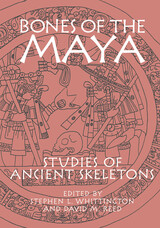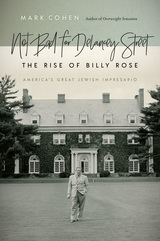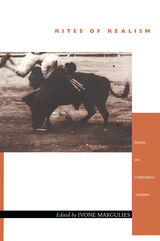4 books by Cohen, Mark

Bones of the Maya
Studies of Ancient Skeletons
Edited by Stephen L. Whittington and David M. Reed
University of Alabama Press, 2006
Brings together for the first time a broad spectrum of bioarchaeologists and reveals remarkable data on Maya genetic relationship, demographic, and diseases
New techniques in osteology have yielded findings on Maya diet and health that challenge the ecological model of collapse. This benchmark collection of essays defined the state of Mayan skeletal studies. Its coverage spans the formative through colonial periods, with a geographic focus on the Maya lowlands of northern Guatemala, Belize, and western Honduras. Bringing together for the first time a broad spectrum of bioarchaeologists and revealing remarkable data on Maya genetic relationship, demographic, and diseases, the collection covers divers topics such as osteological, dental, bone chemistry, and DNA analyses. The diet and health status of Maya populations is a major theme, especially in relation to social status, gender, and the historical problem of the "collapse."
New techniques in osteology have yielded findings on Maya diet and health that challenge the ecological model of collapse. This benchmark collection of essays defined the state of Mayan skeletal studies. Its coverage spans the formative through colonial periods, with a geographic focus on the Maya lowlands of northern Guatemala, Belize, and western Honduras. Bringing together for the first time a broad spectrum of bioarchaeologists and revealing remarkable data on Maya genetic relationship, demographic, and diseases, the collection covers divers topics such as osteological, dental, bone chemistry, and DNA analyses. The diet and health status of Maya populations is a major theme, especially in relation to social status, gender, and the historical problem of the "collapse."
[more]

Not Bad for Delancey Street
The Rise of Billy Rose
Mark Cohen
Brandeis University Press, 2018
He was amazing. “A little man with a Napoleonic penchant for the colossal and magnificent, Billy Rose is the country’s No. 1 purveyor of mass entertainment,” Life magazine announced in 1936. The Times reported that with 1,400 people on his payroll, Rose ran a larger organization than any other producer in America. “He's clever, clever, clever,” said Rose's first wife, the legendary Fanny Brice. “He's a smart little goose.” Not Bad for Delancey Street: The Rise of Billy Rose is the first biography in fifty years of the producer, World’s Fair impresario, songwriter, nightclub and theater owner, syndicated columnist, art collector, tough guy, and philanthropist, and the first to tell the whole story of Rose’s life. He combined a love for his thrilling and lucrative American moment with sometimes grandiose plans to aid his fellow Jews. He was an exaggerated exemplar of the American Jewish experience that predominated after World War II: secular, intermarried, bent on financial success, in love with Israel, and wedded to America. The life of Billy Rose was set against the great events of the twentieth century, including the Depression, when Rose became rich entertaining millions; the Nazi war on the Jews, which Rose combated through theatrical pageants that urged the American government to act; the postwar American boom, which Rose harnessed to attain extraordinary wealth; and the birth of Israel, where Rose staked his claim to immortality. Mark Cohen tells the unlikely but true story, based on exhaustive research, of Rose’s single-handed rescue in 1939 of an Austrian Jewish refugee stranded in Fascist Italy, an event about which Rose never spoke but which surfaced fifty years later as the nucleus of Saul Bellow’s short novel The Bellarosa Connection.
[more]

Overweight Sensation
The Life and Comedy of Allan Sherman
Mark Cohen
Brandeis University Press, 2013
Allan Sherman was the Larry David, the Adam Sandler, the Sacha Baron Cohen of 1963. He led Jewish humor and sensibilities out of ethnic enclaves and into the American mainstream with explosively funny parodies of classic songs that won Sherman extraordinary success and acclaim across the board, from Harpo Marx to President Kennedy. In Overweight Sensation, Mark Cohen argues persuasively for Sherman’s legacy as a touchstone of postwar humor and a turning point in Jewish American cultural history. With exclusive access to Allan Sherman’s estate, Cohen has written the first biography of the manic, bacchanalian, and hugely creative artist who sold three million albums in just twelve months, yet died in obscurity a decade later at the age of forty-nine. Comprehensive, dramatic, stylish, and tragic, Overweight Sensation is destined to become the definitive Sherman biography.
[more]

Rites of Realism
Essays on Corporeal Cinema
Ivone Margulies, ed.
Duke University Press, 2003
Rites of Realism shifts the discussion of cinematic realism away from the usual focus on verisimilitude and faithfulness of record toward a notion of "performative realism," a realism that does not simply represent a given reality but enacts actual social tensions. These essays by a range of film scholars propose stimulating new approaches to the critical evaluation of modern realist films and such referential genres as reenactment, historical film, adaptation, portrait film, and documentary.
By providing close readings of classic and contemporary works, Rites of Realism signals the need to return to a focus on films as the main innovators of realist representation. The collection is inspired by André Bazin's theories on film's inherent heterogeneity and unique ability to register contingency (the singular, one-time event). This volume features two new translations: of Bazin's seminal essay "Death Every Afternoon" and Serge Daney's essay reinterpreting Bazin's defense of the long shot as a way to set the stage for a clash or risky confrontation between man and animal. These pieces evince key concerns—particularly the link between cinematic realism and contingency—that the other essays explore further.
Among the topics addressed are the provocative mimesis of Luis Buñuel's Land Without Bread; the adaptation of trial documents in Carl Dreyer's Passion of Joan of Arc; the use of the tableaux vivant by Wim Wenders and Peter Greenaway; and Pier Paolo Pasolini's strategies of analogy in his transposition of The Gospel According to St. Matthew from Palestine to southern Italy. Essays consider the work of filmmakers including Michelangelo Antonioni, Maya Deren, Mike Leigh, Cesare Zavattini, Zhang Yuan, and Abbas Kiarostami.
By providing close readings of classic and contemporary works, Rites of Realism signals the need to return to a focus on films as the main innovators of realist representation. The collection is inspired by André Bazin's theories on film's inherent heterogeneity and unique ability to register contingency (the singular, one-time event). This volume features two new translations: of Bazin's seminal essay "Death Every Afternoon" and Serge Daney's essay reinterpreting Bazin's defense of the long shot as a way to set the stage for a clash or risky confrontation between man and animal. These pieces evince key concerns—particularly the link between cinematic realism and contingency—that the other essays explore further.
Among the topics addressed are the provocative mimesis of Luis Buñuel's Land Without Bread; the adaptation of trial documents in Carl Dreyer's Passion of Joan of Arc; the use of the tableaux vivant by Wim Wenders and Peter Greenaway; and Pier Paolo Pasolini's strategies of analogy in his transposition of The Gospel According to St. Matthew from Palestine to southern Italy. Essays consider the work of filmmakers including Michelangelo Antonioni, Maya Deren, Mike Leigh, Cesare Zavattini, Zhang Yuan, and Abbas Kiarostami.
Contributors: Paul Arthur, André Bazin, Mark A. Cohen, Serge Daney, Mary Ann Doane, James F. Lastra, Ivone Margulies, Abé Mark Normes, Brigitte Peucker, Richard Porton, Philip Rosen, Catherine Russell, James Schamus, Noa Steimatsky, Xiaobing Tang
[more]
READERS
Browse our collection.
PUBLISHERS
See BiblioVault's publisher services.
STUDENT SERVICES
Files for college accessibility offices.
UChicago Accessibility Resources
home | accessibility | search | about | contact us
BiblioVault ® 2001 - 2024
The University of Chicago Press









